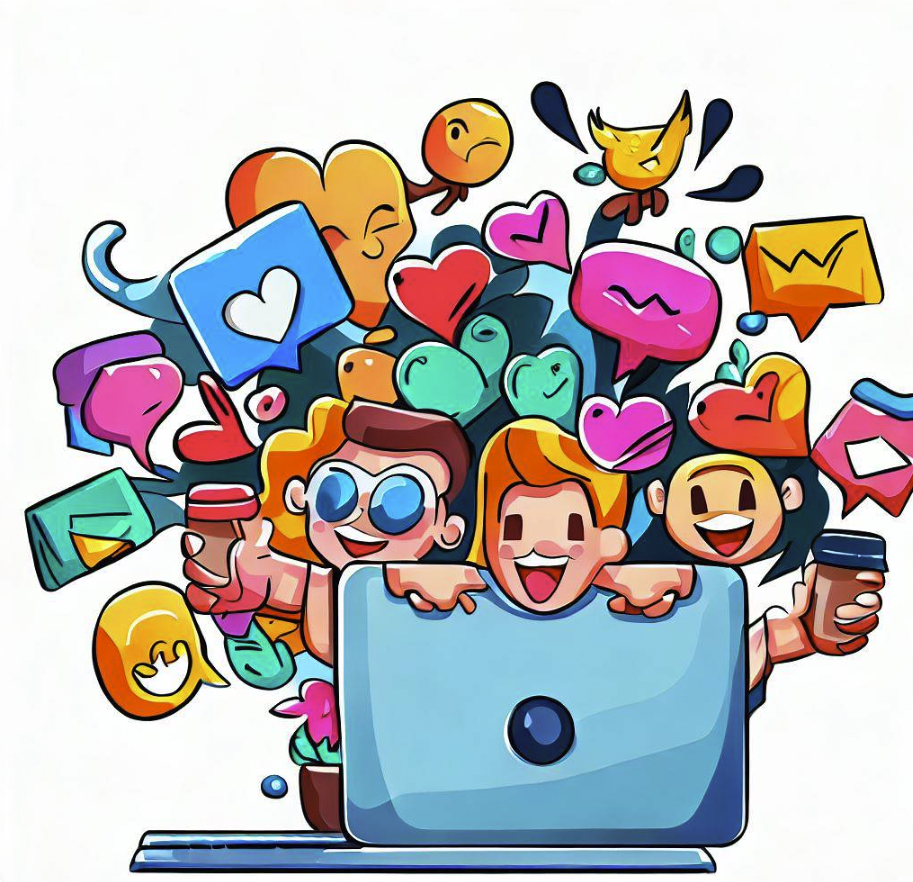Social media has become an integral part of our daily lives, with billions of people around the world using platforms such as Facebook, Instagram, Twitter, and Snapchat to connect, share, and communicate.
While social media offers numerous benefits, it is important to acknowledge the negative impact it can have on individuals and society as a whole.
In this article, we will explore the various reasons why social media can be detrimental to our mental health, relationships, privacy, and overall well-being.
Table of Contents
The Impact on Mental Health
Social media has been linked to several mental health issues, including depression, anxiety, and low self-esteem.
Here are some ways in which social media can negatively affect our mental well-being:
- Comparison and self-esteem: Social media often presents an idealized version of people’s lives, leading to feelings of inadequacy and low self-esteem when comparing ourselves to others.
- Cyberbullying: The anonymity and distance provided by social media platforms can facilitate cyberbullying, which can have severe psychological consequences for the victims.
- Fear of missing out (FOMO): Constant exposure to others’ activities and experiences on social media can create a fear of missing out, leading to anxiety and a sense of being left out.
- Validation seeking: The pursuit of likes, comments, and followers on social media can become an obsession, leading to a constant need for validation and approval from others.
The Impact on Relationships
Social media has transformed the way we interact with others, but it has also introduced new challenges and complications in our relationships.
Here are some ways in which social media can negatively impact our relationships:
- Comparison and jealousy: Seeing others’ seemingly perfect relationships on social media can lead to feelings of jealousy and dissatisfaction in our own relationships.
- Privacy invasion: Social media blurs the boundaries between public and private life, making it easier for others to invade our privacy and share personal information without consent.
- Online infidelity: Social media provides opportunities for emotional and physical infidelity, as individuals can easily connect with others outside of their committed relationships.
- Distraction and disconnection: Excessive use of social media can lead to a lack of presence and engagement in real-life interactions, causing strain in relationships.
The Impact on Privacy
Social media platforms collect vast amounts of personal data, which can be used for targeted advertising, surveillance, and even manipulation.
Here are some privacy concerns associated with social media:
- Data breaches: Social media platforms have experienced numerous data breaches, exposing users’ personal information to hackers and other malicious actors.
- Third-party access: Social media platforms often share user data with third-party apps and advertisers, raising concerns about the security and privacy of personal information.
- Surveillance and tracking: Social media platforms track users’ online activities, preferences, and location, allowing for targeted advertising and potentially invasive surveillance.
- Manipulation and misinformation: Social media algorithms can manipulate the content we see, potentially influencing our opinions and beliefs without our awareness.
The Impact on Well-being
While social media can provide entertainment and connection, excessive use can have detrimental effects on our overall well-being.
Here are some ways in which social media can impact our physical and emotional health:
- Sedentary lifestyle: Spending excessive time on social media can lead to a sedentary lifestyle, contributing to physical health issues such as obesity and cardiovascular problems.
- Sleep disturbances: The blue light emitted by screens and the constant stimulation from social media can disrupt sleep patterns, leading to insomnia and poor sleep quality.
- Emotional distress: Negative experiences on social media, such as cyberbullying or exposure to distressing content, can cause emotional distress and even trigger mental health issues.
- Productivity loss: Social media can be highly addictive, leading to procrastination and a decrease in productivity, both in personal and professional settings.
FAQs: Why Is Social Media Bad?
1. How does social media affect mental health?
Social media can negatively impact mental health by fostering comparison, cyberbullying, fear of missing out (FOMO), and validation seeking.
2. Can social media harm relationships?
Yes, social media can harm relationships by promoting comparison and jealousy, invading privacy, facilitating online infidelity, and causing distraction and disconnection.
3. What are the privacy concerns associated with social media?
Privacy concerns related to social media include data breaches, third-party access to personal information, surveillance and tracking, and the potential for manipulation and misinformation.
4. How does excessive social media use affect well-being?
Excessive social media use can lead to a sedentary lifestyle, sleep disturbances, emotional distress, and a decrease in productivity.
5. Can social media contribute to physical health issues?
Yes, spending excessive time on social media can contribute to physical health issues such as obesity and cardiovascular problems due to a sedentary lifestyle.
6. What are the emotional consequences of negative experiences on social media?
Negative experiences on social media, such as cyberbullying or exposure to distressing content, can cause emotional distress and even trigger mental health issues.
7. How can social media affect productivity?
Social media can be highly addictive, leading to procrastination and a decrease in productivity both in personal and professional settings.
8. Is social media addictive?
Yes, social media can be addictive due to its constant stimulation, validation-seeking nature, and the fear of missing out (FOMO) it can create.
9. Can social media impact sleep quality?
Yes, the blue light emitted by screens and the constant stimulation from social media can disrupt sleep patterns, leading to insomnia and poor sleep quality.
10. How can individuals mitigate the negative effects of social media?
Individuals can mitigate the negative effects of social media by setting boundaries, practicing mindfulness, prioritizing real-life connections, and being aware of their online behaviors and emotions.
Summary
Social media has undoubtedly revolutionized the way we connect and communicate, but it is crucial to recognize its negative impact on our mental health, relationships, privacy, and overall well-being.
The constant comparison, privacy concerns, and addictive nature of social media can have severe consequences for individuals and society as a whole.
It is essential to approach social media mindfully, set boundaries, and prioritize real-life connections to mitigate these negative effects.


